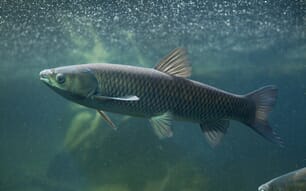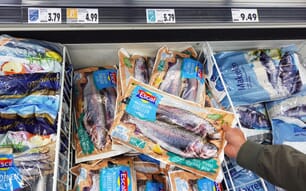Director of Fisheries Department, Hjh Hasnah bte Ibrahim told BruDirect.com this, in response to the Bulletin's frontpage story on October 6 which highlighted the confiscation of Pacific White Prawns or Litopenaeous vannamei by the Fisheries Department.
The supplier who received the prawns from another supplier from Malaysia, brought some 700kg of the prawns and was about to sell them at the Gadong Fish Market when the prawns were confiscated.
Hjh Hasnah said the government through the Fisheries Department and private entrepreneurs have invested millions to establish a shrimp aquaculture industry and in developing Specific Pathogen Free (SPF) populations of Litopenoeus stylirostris (Rostris shrimp) to support the domestic aquaculture industry.
There are currently 230 hectares of shrimp farms in operation in the country. These activities are promoted as part of the Fisheries Department's strategy for the fisheries sector to contribute to the economic diversification' of the country.
In 2006, these 'efforts were re-doubled when the SPF programme was expanded to include Penaeus monodon (Tiger Prawns). Thus it is of utmost importance to safeguard the interest and viability of the industry.
Brunei Darussalam so far has been enjoying a disease-free status whereby farmed shrimps in Brunei are free of the viral pathogens such as White Spot Syndrome virus (WSSV), infectious Hypodermal and Hematopoietic Necrosis virus (IHHNV), Monodon Baculovirus (MBV), Taura Syndrome virus (TSV), Yellow Head virus (YHV), Gill-associated virus (GAV), infectious Myonecrosis virus (IMNV), Baculovirus Penaei (BP), Hepatopancreactic parvo-like virus (HPV) and Mourilyan virus (MoV).
Against this background, the Fisheries Department has upgraded its capacity to conduct post-quarantine testing of high-risk disease agents imported into Brunei Darussalam, in particular aquacultured shrimp.
The department has set up the Aquatic Animal Health Centre (AAHC), which has a Polymerase Chain Reaction (PCR) lab that has the capability to anaylse and detect viral diseases such as WSSV, IHHNV, MBV, TSV, YHV, GAV, IMNV, BP, HPV and MoV.
Uncontrolled importation of animal products poses a major threat of disease introduction into Brunei and mindful of this, the department conducted an Import Risk Analysis (IRA) firstly to identify potential sources of biosecurity risk associated with imports of shrimp and other crustacean commodities, and to determine which diseases could be introduced.
The analysis indicated that one of the main risks of disease entry into Brunei would be via importation of fresh shrimps which are mainly sold through the wet markets.
Ban On Prawn Import Prevents Diseases
BRUNEI DARUSSALAM - The Brunei Fisheries Department has said that the ban on the import of all live shrimps and-uncooked/fresh Pacific White Prawns is to prevent the risk of disease entry into the Sultanate.




